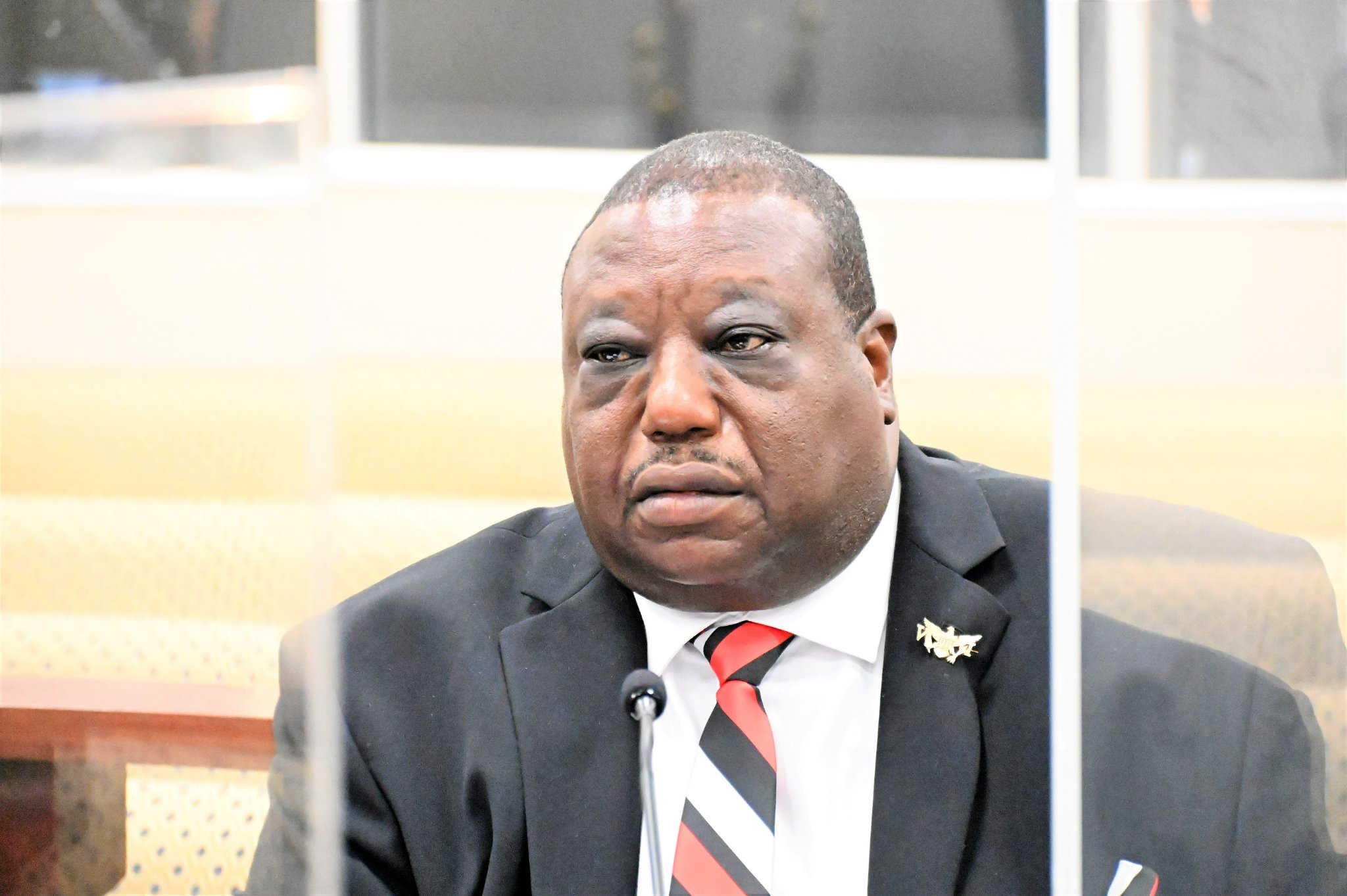V.I. Lottery logo.
Senator Janelle Sarauw put strong claims before the executive director of the Virgin Islands Lottery, Raymond J. Williams on Monday, accusing the entity of having “intent to defraud the government of the Virgin Islands” for paying an unqualified lottery chief a full salary — $65,000 — for almost a year, before having him transferred to another department.
![]()
“We took nine months to 10 months to transition an employee from the job to a next job with a full pay check. Mr. Chair that’s intent to defraud the government of the Virgin Islands — being paid for work, having never done the job,” she said.
The chief, who was employed as an exempt worker, was hired by the V.I Lottery two years ago. But last November — more than a year after working in that position - it was noted that he did not have a law enforcement officer certification and therefore was not qualified to serve as chief.
Mr. Williams said that it was his “in-house” decision to have the employee paid in full while on administrative leave, pending a transfer from that post. However, it was only recently that the director submitted a Notice of Proposed Action (NOPA) to the Governor’s Office for the employee’s termination. In defending his decision, the director told law makers that, “The officer was given due process through the Post Council."
 V.I. Lottery Executive Director Raymond Williams. (Credit: V.I. Legislature)
V.I. Lottery Executive Director Raymond Williams. (Credit: V.I. Legislature)
But Ms. Sarauw suggested to Finance Chair, Senator Kurt Vialet that the director’s explanation provided no justification for his actions.
In response, Mr. Vialet noted that this was not an isolated situation and shared that there are others in various government agencies who are not qualified for the jobs that they are in – a matter, he said, the committee needed to continue to vehemently address. “To myself, I named about six individuals who I know of, who are presently being paid by this government on a regular basis and don’t have to report to work. And some of these other individuals are not on administrative leave; they just have been hired and literally don’t report to work and are being paid because of their connection to certain individuals within government.”
Ms. Sarauw added, "We're paying an employee roughly a full paycheck. Do you know how that demoralizes, or how that impacts employee morale? So today I think it was disingenuous to say oh, we're getting a new chief, but we were paying a chief for not being a chief.
"This practice cannot continue in government. That's defrauding the government of the Virgin Islands," Ms. Sarauw went on, as she asked Lamar Jacobs, director of security and investigations why did he sign this employee's time sheet every two weeks, and who was above Mr. Jacobs signing this employee's paycheck and approving his time sheet every two weeks.
"And how was he even given a check every two weeks for nine months having never worked from Nov. 2021... That is criminal," she said.
Meanwhile, Senator Donna Frett-Gregory pointed to discrepancies in the transfer of annual contributions for the Special Education Initiative Fund and the retiree’s bonus of the Government Retirement System (GERS), which resulted in the lottery giving less monies than it is mandated to. The VI Lottery is obligated to pay 15 and 10 percent respectively, of its net income into to those funds, according to Chapter 13 of the Virgin Islands Lottery Act under powers and duties of Commission.
In regards to GERS, the organization has consistently applied only the section which speaks to a payout of $2.27 million – which is at times less than 10 percent of what the lottery collects in revenue.
The law states that the lottery is required “to transfer not less than $2,270,000 from the net income of the lottery from all games authorized by this section to the Government Employees' Retirement System before July 15 each year to be used exclusively as an annual bonus payment for annuitants and pensioners pursuant to Title 3, Chapter 27, Section 729 (b) of this code. The sum may be paid in quarterly installments to the retirement System so long as the total amount is received before July 15.”
Ms. Frett-Gregory expounded further, telling the director that “…it’s 10 percent and not less that $2.2. So, if your 10 percent falls less than the $2.2 [million] then you’ve got to give the $2.2; if it falls more, then you could bring it in at what number you want to bring it in [but] not less than the $2.2 [million.]"
“We’ve got to clear this up, you owe the government money,” she insisted.
The senator noted that the lottery also needed to pay to the government 20 percent of its net income as outlined by law – which according to the audit report it presented to the Senate – had not yet been done.
Mr. Williams said the entity’s legal counsel had already begun to look at the discrepancies with a mind to better understand it. He proposed that legislators and the lottery review the legislation together, concluding that, "I'm hearing everything that she's saying [Senator Frett-Gregory] — that's one interpretation — we may have another."

